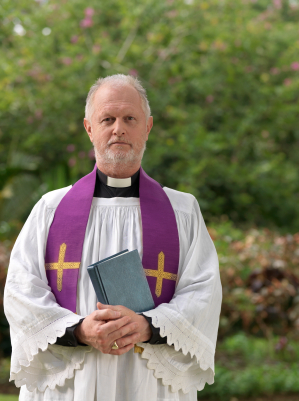Are you considering serving your community and exploring the path of religious leadership? If you’re residing in the vibrant state of South Carolina, obtaining ordination as a minister may be a fulfilling endeavor. Whether you seek to lead a congregation, perform ceremonies, or simply deepen your spiritual connection, understanding the process of ordination in South Carolina is paramount. In this comprehensive guide, we will take you through the steps, requirements, and considerations involved in becoming a licensed minister within the palmetto state.

Image: www.universallifechurch.org
Navigating the Legal Framework of Ordination in South Carolina
In the realm of religious freedom and diversity, South Carolina adheres to the concept of non-denominational ordination. This legal framework allows individuals to receive ordination from various religious organizations, churches, or ministerial associations. Unlike some states that mandate seminary education or state-issued credentials, South Carolina empowers individuals to seek ordination from the religious body that best aligns with their beliefs and aspirations.
Steps to Ordination: A Journey of Faith and Formalization
The path to ordination unfolds in a series of steps. These include:
-
Selecting an Ordaining Organization: Explore religious organizations, churches, or ministerial associations that offer ordination services. Consider which beliefs and practices resonate with your spiritual journey and align with your purpose as a minister.
-
Completing an Ordination Process: The specific requirements for ordination may vary depending on the chosen organization. However, most ordaining bodies will conduct interviews, require essays or statements of faith, and provide training or study materials.
-
Receiving Ordination Credentials: Upon completing the ordination process, you will receive a certificate or document indicating your status as an ordained minister within the specific religious organization.
Requirements for Ordaining Organizations in South Carolina: Ensuring Legitimacy
South Carolina law outlines specific requirements for entities authorized to ordain ministers. These include:
-
Possessing a physical presence or “regular religious activity” within the state for at least six months prior to issuing ordinations.
-
Adhering to a well-defined set of beliefs and practices, including religious texts, creeds, and doctrines.
-
Maintaining a consistent place of worship or religious gathering.
-
Regularly documenting and maintaining records of ordination proceedings.

Image: freeordination.com
Benefits and Privileges of Ordination in South Carolina: Extending Your Ministry
Ordained ministers in South Carolina enjoy several benefits and privileges:
-
Authority to Perform Marriage Ceremonies: Ordained ministers can legally solemnize marriages and issue marriage certificates.
-
Tax Advantages: Religious organizations, including ordained ministers, may qualify for tax exemptions on certain income and property.
-
Hospital Visitation: Ministers may be granted access to visit or provide counseling services to patients in hospitals and other healthcare facilities.
-
Prison Ministry: Ordained ministers can engage in pastoral work within correctional institutions, offering spiritual guidance and support to incarcerated individuals.
Additional Considerations: Exploring the Scope of Your Ministry
Beyond the legal aspects of ordination, consider these additional factors to fully explore the nature of your ministry:
-
Purpose and Mission: Define your goals and aspirations as a minister. Determine the type of ministry you envision, whether it’s serving a specific congregation, leading a spiritual group, or pursuing charitable work.
-
Continuing Education: Engage in ongoing studies and personal reflection to grow your knowledge and enhance your effectiveness as a minister.
-
Community Involvement: Actively participate in your community, offering your services and support to those in need.
How To Get Ordained In Sc
Conclusion
Ordination in South Carolina offers a pathway for individuals to deepen their faith, serve their communities, and make a meaningful contribution to spiritual life. By understanding the process and requirements involved, you can take the first steps toward fulfilling this calling. May your journey be filled with purpose, guidance, and the boundless joy of sharing your spiritual gifts with others. We encourage you to continue exploring the vast resources and support available to ordained ministers in South Carolina and beyond.